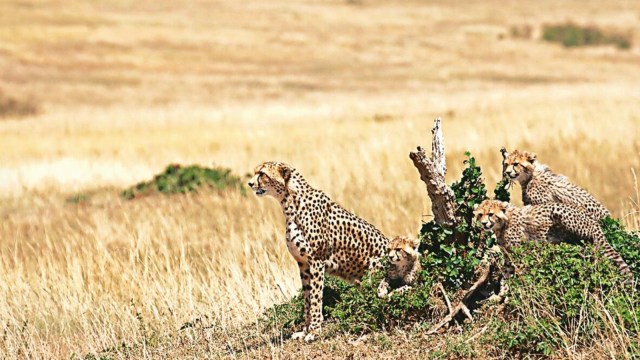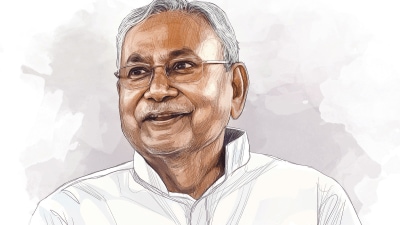All eyes on 5 cheetahs released into the wild at Kuno
‘The cubs are now 13 months old. They are able to hunt with their mother, and will be able to survive in the wild,’ the park director told Express
 "The cheetahs have been released as per the schedule. They will be tracked by a single team round the clock. The results from the release of the first male coalition were satisfactory following which the other cheetahs were released," he said.
"The cheetahs have been released as per the schedule. They will be tracked by a single team round the clock. The results from the release of the first male coalition were satisfactory following which the other cheetahs were released," he said.
After spending a year in captivity, five more cheetahs were released into the wild at Kuno National Park which includes a mother and three cheetah cubs for the first time.
Chief Minister Mohan Yadav informed that on Wednesday female cheetah Asha and her three cubs were released from the large enclosure into the open jungle at Kuno National Park. Another female cheetah, Dheera, was also released.
This brings the total number of cheetahs released into the wild to seven, while 19 more cheetahs will be released in the coming weeks. This move is expected to boost tourism in Kuno National Park.
However, cheetah Veera and her two newborn cubs will continue to remain in enclosures with her for at least a year to improve their chances of survival in the wild, officials said.
“It is immensely gratifying to witness cheetahs, once extinct in Asia, are now not only sprinting across the sacred land of Madhya Pradesh but also expanding their family,” Yadav said. “The land of Madhya Pradesh, embodying the sentiment of ‘Jeev Charachar Jantu Samana’ (all living beings are equal), is truly remarkable—an ideal sanctuary for wildlife and a playground for many endangered species. We remain committed to preserving wildlife and conserving biodiversity for future generations, and we will continue to honour the sacred land of Madhya Pradesh with such innovative initiatives.”
Asha had delivered her three cubs on January 1, 2024. These cubs will stay with their mother for the next few months and further hone their hunting skills before they strike out on their own.
Meanwhile, special precautions have been taken to ensure their safety in the wild, with dedicated teams assigned to monitor Asha and her cubs round the clock. The monitoring teams will keep track of every movement, and the personnel on duty will rotate periodically to maintain vigilance.
Kuno park director Uttam Kumar Sharma told The Indian Express, “Asha’s cubs are now 13 months old. They are able to hunt with their mother and they will be able to survive in the wild. We have monitoring teams that will track the released cheetahs”.
The central government’s ambitious cheetah translocation project hit a major roadblock in August 2023 after three adult cheetahs “died due to septicaemia after wounds beneath their dense winter coat on the back and neck regions became infested with maggots”.
Last August, the Cheetah Project Steering Committee — a panel of experts that monitors and advises the government on the reintroduction of cheetahs — had decided to release the cheetahs into the wild. The committee had stated that the cheetahs would be released in a phased manner, starting with coalitions (a group that lives together), then individual cheetahs and at last, mothers with their cubs.
After the male coalitions were released, wildlife officials had “studied their behaviour before the others were set into the wild”, said Kuno DFO Tirukural R.
“The cheetahs have been released as per the schedule. They will be tracked by a single team round the clock. The results from the release of the first male coalition were satisfactory following which the other cheetahs were released,” he said.







